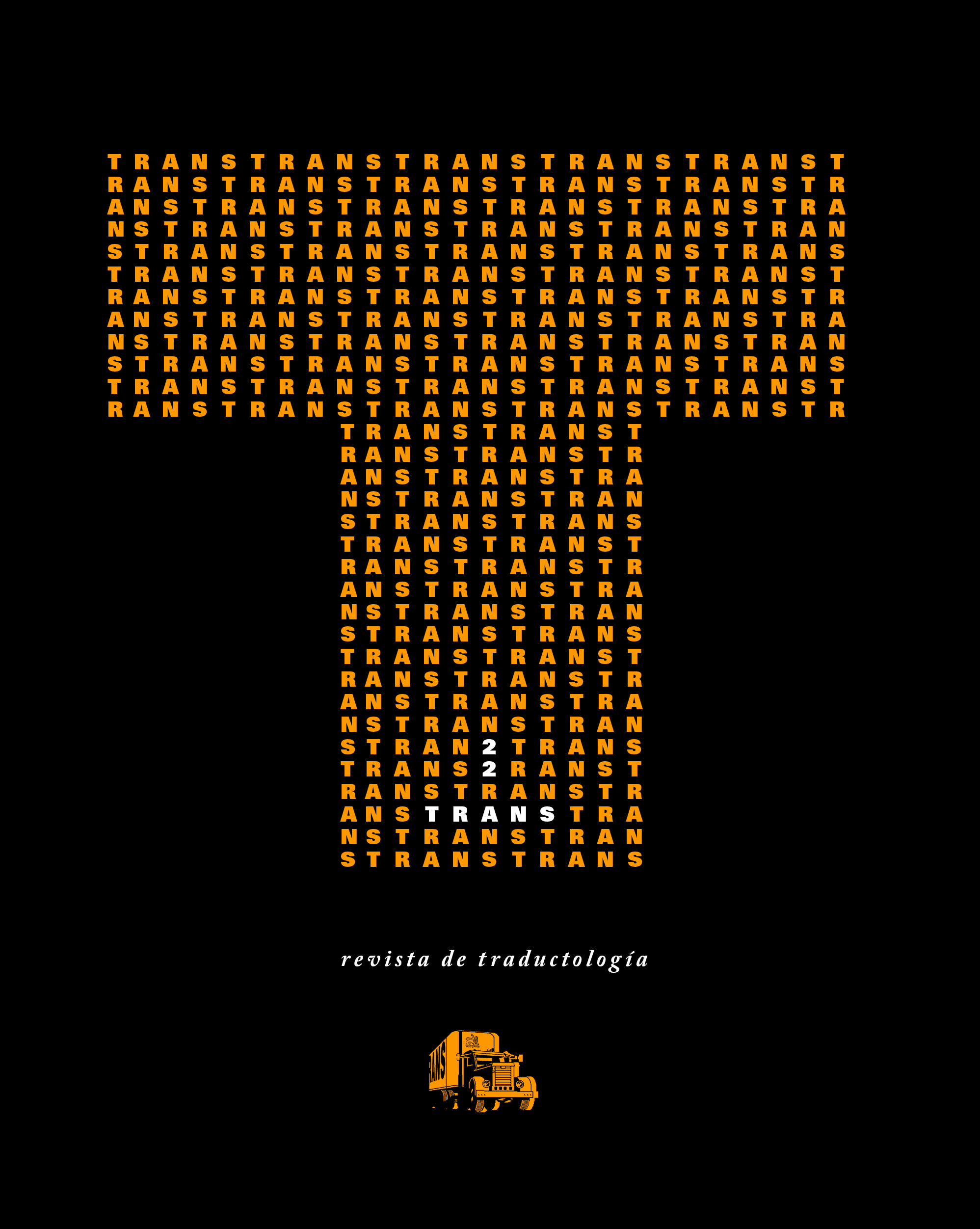The translation of sci-fi works by English-speaking female authors
DOI:
https://doi.org/10.24310/TRANS.2018.v0i22.5340Keywords:
science fiction, feminism, translation, discrimination, female authorsAbstract
With this note, we intend to make a first approximation to the impact that the lack of translations of English-speaking science fiction female authors has on the publishing market and the consideration of those same authors in the history of this literary genre in our country. For this, we will be make a brief approximation to the editorial situation and a comparative sampling of the translations that have been made of the works of the different female and male authors that have been awarded with the Hugo prize, considered
one of the most relevant in the genre of science fiction.
Downloads
Metrics
Publication Facts
Reviewer profiles N/A
Author statements
Indexed in
-
—
- Academic society
- N/A
- Publisher
- Universidad de Málaga
References
The Internet Speculative Fiction Database, http://www.isfdb.org, (fecha de consulta: 14 de abril de 2018)
Science Fiction and Fantasy Writers of America, http://www.sfwa.org, La Tercera Fundación, http://www.tercerafundacion.net,
Base de datos del ISBN. https://www.mecd.gob.es/cultura-mecd/areas-cultura/libro/bases-de-datos-del-isbn/base-de-datos-de-libros.html
Página personal Iria G. Parente, https://www.facebook.com/iria.g.parente/posts/10209252052009929?pnref=story,
Downloads
Published
How to Cite
Issue
Section
License
All contents published in TRANS. Revista de Traductología are protected under the Creative Commons Attribution-NonCommercial-ShareAlike 4.0 International (CC BY-NC-SA 4.0) license. All about this license is available in the following link: <http://creativecommons.org/licenses/by-nc-sa/4.0>
Users can copy, use, redistribute, share and exhibit publicly as long as:
- The original source and authorship of the material are cited (Journal, Publisher and URL of the work).
- It is not used for comercial purposes.
- The existence of the license and its especifications are mentioned.
- ShareAlike — If you remix, transform, or build upon the material, you must distribute your contributions under the same license as the original.
There are two sets of authors’ rights: moral and property rights. Moral rights are perpetual prerogatives, unrenounceable, not-transferable, unalienable, imprescriptible and inembargable. According to authors’ rights legislation, TRANS. Revista de Traductología recognizes and respects authors moral rights, as well as the ownership of property rights, which will be transferred to University of Malaga in open access.
The property rights are referred to the benefits that are gained by the use or the dissemination of works. TRANS. Revista de Traductología is published in an open access form and it is exclusively licenced by any means for doing or authorising distribution, dissemination, reproduction, , adaptation, translation or arrangement of works.
Authors are responsable for obtaining the necessary permission to use copyrighted images.













21.png)
